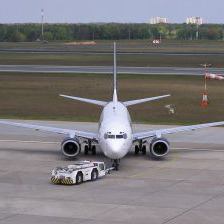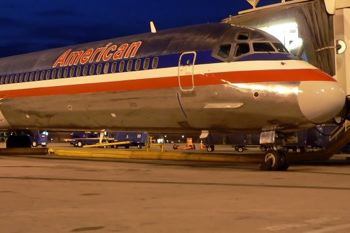Travel News
American Airlines Union Rejects Contract: Strike Possible?
American Airlines officials are in a holding pattern after the airline’s largest union rejected a proposed contract on Tuesday.
The Transport Workers Union (TWU) which represents several American Airlines work groups announced on its Web site late Tuesday that the airline’s mechanics groups had voted down a provisional pay deal.
American’s stock clerks’ group also rejected a proposed contract, while a third American Airlines group, technical specialists, approved the deal American Airlines presented to them.
American is also in labor talks with other work groups, including the pilots’ and flight attendants’ unions.
TWU leaders say that after four years of negotiations, the pay deal presented to workers did not adequately compensate workers for the millions in cutbacks that where implemented in 2003 to keep the company from filing for bankruptcy.
 In 2003, American Airline’s parent company, AMR, asked labor groups for concessions to allow the airline to avoid bankruptcy. The airline did this at a time when several other major airlines, like United, were doing the same, but under the authority of a bankruptcy court.
In 2003, American Airline’s parent company, AMR, asked labor groups for concessions to allow the airline to avoid bankruptcy. The airline did this at a time when several other major airlines, like United, were doing the same, but under the authority of a bankruptcy court.
Consequently, other airlines won bigger concessions from their workers. American Airlines has argued that, in spite of concessions, they are paying higher labor costs than their competitors.
American Airlines is also one of the few airlines that does not outsource its repair work and has in-house mechanics. The airline has used this as a selling point, but could outsource mechanical jobs if pushed too far.
For this reason, though the TWU is saying that the “no” votes amount to strike authorization, the likelihood of a strike is slim, since the union would take a deal before risking jobs. In addition, airline strikes in the United States move at a snail’s pace thanks to the The Railway Labor Act, which safeguards interstate commerce.
Get the latest Air Travel News in our Airlines & Airports section.
Under The Railway Labor Act, airline unions cannot strike until the National Mediation Board (NMB) releases them from negotiations, which is unlikely. NMB is more likely to force the union to be on the bargaining table for several months.
 Only after the NMB declares an impasse and begins a 30-day cooling off period can workers strike.
Only after the NMB declares an impasse and begins a 30-day cooling off period can workers strike.
Because of the way the law works, unions frequently chose to reject the first contracts presented by the airline management, since both sides know mediation will be forced and a better deal can be offered.
American has said the company is looking forward to altering the agreements in a way that will achieve ratification.
The airline might need to settle the dispute with its mechanics sooner rather than later. On Thursday, the Federal Aviation Administration (FAA) fined the carrier a record $24.2 million for failing follow a 2006 airworthiness directive.
According to the FAA, the American Airlines did not properly fasten wiring harnesses on its fleet of 300 McDonnell-Douglas MD-80 jets, causing the agency to ground the entire fleet in 2008.
By Adriana Padilla at PeterGreenberg.com.
Related Links: Reuters, Wall Street Journal, Dallas Morning News,
Related Links on PeterGreenberg.com:
- News Analysis: What American Airlines Says About the State of Aviation
- FAA Maintenance Fallout Merry-Go-Round: American Airlines Again
- Whistleblowers, the FAA, and “Airworthiness” Directives
- Airline Safety Starts With Maintenance
- News Analysis: FAA “Inspection-gate” Causes Cancellations
- Southwest Suspended Over Maintenance, FAA Employees Reassigned
- Airlines & Airports section












